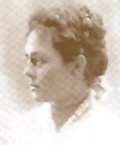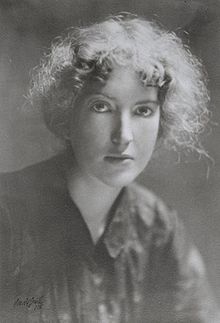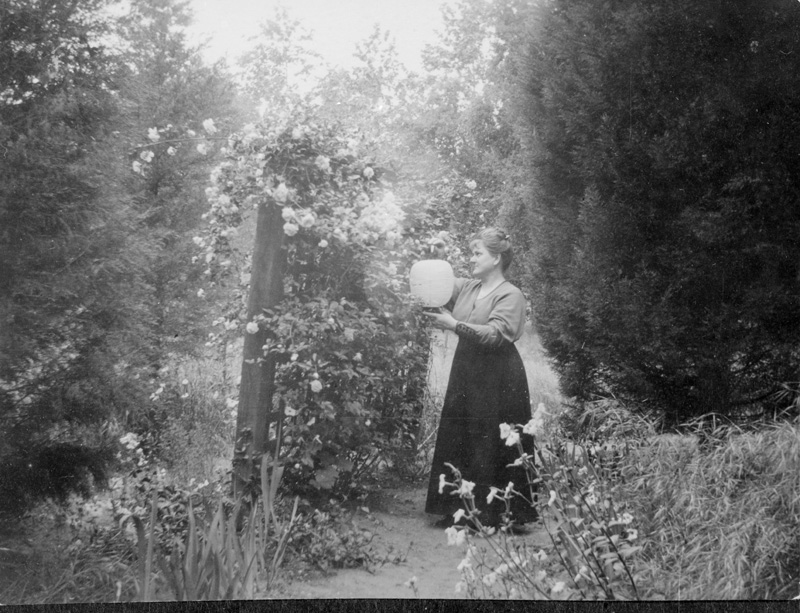Sun 28 Jul 2013
Following are some paragraphs from an application to do work at the Huntington Library concerning three pre-war Los Angeles poets, Julia Boynton Green, Olive Percival and Nora May French. I’m sure all of you have heard of none of these writers (though if you have, please contact me immediately). More neglectorinos dug up during my research for the historical anthology of Los Angeles Poetry.
I came across Green’s poetry while researching another project, a historical anthology of Los Angeles poetry. I call the anthology “historical†because it will also consist of essays describing in some detail the various clusters of poets included. In Green’s case, she is part of an interesting early trio of women poets in early Los Angeles which includes Olive Percival (1869-1945) and Nora May French (1880-1907), both of whose papers are also collected at the Huntington. Unlike Percival or French, however, Green has never had a posthumous publication or reprints of her books, nor has she attracted the attention of scholars. I would also, however, like to look at Percival and French’s papers in case there is material that has been overlooked by past researchers.
Green was born Julia P. Boynton in New York, and spent the first 29 years of her life in New York State and traveling Europe. She published one book of poetry, Lines and Interlines, when she was 26. American Women: Fifteen Hundred Biographies, published sometime in the early 1890s, notes that she married Levi Worthington Green in 1890 and that, after their six months in Europe and a move to Rochester, “her literary work has been seriously disturbed by so many changes and diversions.†She moved to California in 1893, but she didn’t publish her next book of poems, This Enchanted Coast: Verse on California Themes, until 1928 in Los Angeles with the Times-Mirror Press over forty years after the publication of Lines and Interlines. Her final book, Noonmark, appeared in 1936, possibly self-published, out of Redlands.
I don’t have much more information about Green. The books’ acknowledgements pages note that she published in such journals and newspapers as The Boston Transcript, The Forum, The New York Times, American Poetry Magazine, Los Angeles Saturday Night, The Poetry Review (London) among a host of others that I’d never heard of.
Interestingly, toward her later years she published poems in the science fiction journals Weird Tales and Amazing Stories, largely because, I think, she wrote many satires concerning her dislike of modern life, particularly its machinery, but in the process managed to describe such speculative possibilities as whether someday airplanes, for example, might become sentient: “Will shrewd Invention, further, give the plane / A singing voice unknown to stork or crane?†she writes in “This Thing Incredible.â€Â “Prodigious Proxies†anticipates some of the concerns of Isaac Asimov and Philip K. Dick: “Will mutinous machines / Tread beauty, silence, peace, beneath their hooves / And, whether man denounces or approves, / Emerge the brutal end and not the means?â€
Green’s poetry from her first book, Lines and Interlines, while very interesting and formally accomplished, was not included by John Hollander for his amazing two volume anthology American 19th Century Poetry (Library of America), most likely because he had simply not come across her work due to her disappearance from the New York scene. This is unfortunate because much her poetry exceeds by far writing by many of the minor, since-forgotten figures he included. She took a very anti-modernist stance in her poetics—one poem, “Locoed,†rails against the arrival of free verse—and so her poetic style never much transcended what she had already developed in her youth; a taste for sonnets, ballads and rhyming couplets persists well into the 20th century. But the range of her concerns was wide; she wrote lovely, never trivial poems about nature, reflections on art and aesthetics, effective poems about love and death, narrative poems and, finally—what I find most original and fascinating about her—several anti-modern satires.
The website Archivegrid notes, tantalizingly, that the Huntington’s collection includes “correspondence, poetry, articles, stories, drama, and three unpublished books†by Green. Of course, I hope those three books are of poetry on a par with what has appeared, but I’d be interested new material of any genre. Consequently, another website lists a series of poems that she published after the appearance of Noonmark, some of which I’ve been able to locate, some not—drafts of these poems would be welcome.
My goal is to assemble a book, if not of a “complete†poems, then of a selection. I’d like to include whatever prose about her literary community, her writing practices and her views on poetry and writing that I can find. Green represents something quite important to Los Angeles poetry; she is the earliest English-language poet I can find, in fact, who has a substantial body of work that rises much above the level of the derivative material by the countless other L.A. poets of the time and could have a national audience. Green is distinctly Californian, if not an Angeleno, in her preference for the quiet pleasures of her garden over what must have seemed the terrible encroachment of technology on everyday life, most interestingly as it descends from the air. Even as I write I hear the sound of a propeller plane overhead, nothing compared to the occasional swarm of helicopters which regularly descend on my Hollywood neighborhood—Green might have been the first to complain of such things in poems! Though she falls somewhat into the tradition of Los Angeles boosterism inaugurated by the newspaperman Charles Lummis to encourage emigration, she is never less than detailed in her attentions to plant and animal life on the “enchanted coast,†and is never governed by anything but her own impulses to create and respond to the world.
I’d also like to research the papers of Nora May French, an intense poet who committed suicide at the age of 27. The Outer Gate: The Collected Poems of Nora May French appeared in 2009 from Hippocampus Press, which usually focuses its attention on writers in the H.P. Lovecraft circle. While French didn’t write science fiction or “weird†verse, her circle of writers during the last year of her life in Carmel included George Sterling and a few others who crossed over into the uncanny. French’s poetry is much denser than Green’s, more visionary, and, as her early suicide might suggest, pained and impatient. I don’t think there are any more surviving poems—her mother apparently destroyed all of her lighter, humorous verse because she thought it would hurt French’s reputation as a writer—but I’d love to take a look anyway.
Olive Percival, known largely as a collector, travel writer and designer of fabulous gardens (the Huntington has published a book of her designs) published two books of poems as well as a series of memoirs. One of Percival’s books, Leaf-Shadows and Rose-Drift (1911), anticipates some of the Asian-inspired stylistics of major Imagist poets like Ezra Pound in his book Cathay (1915). I haven’t been able to locate her second book, Yellowing Ivy, published the year after her death in 1945. While my least favorite aspect of her book of Asian-influenced poetry are the rhyme schemes—it’s unfortunate that she didn’t discover or embrace free verse—I’d love to see whether she either moved past her Asian mode, past her devotion to fixed rhyme schemes3, or if not, developed the method of her first book into something more substantial.
I haven’t contacted a press yet about the poems of Green, but I am in discussion with a few presses about the historical anthology itself. Consequently, I’m working on a series of essays for the Los Angeles Review of books on my various “clusters†of L.A. poets which should start appearing over the next year. In 2011, I published a selection of “lost†L.A. Poets in the San Francisco journal Paul Revere’s Horse. It included two poems French, two by Green and three by Percival in that selection—I can give you a copy for your archives if you’d like.



September 8th, 2013 at 3:02 pm
Can you send me a copy of the two Nora May French poems mentioned? I would love to use them in a science fiction unit I’m teaching! I can’t find them anywhere online (what a shame!)…
Thanks!